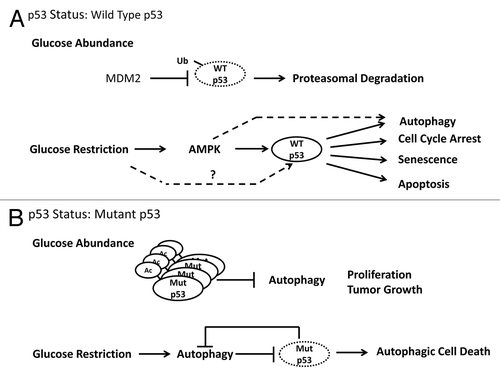Figures & data
Figure 1. Glucose deprivation leads to autophagic degradation of mutant p53. (A) Wild type p53 is degraded by the proteasome under basal conditions but can be activated in an AMPK-dependent manner after glucose deprivation. Activated wild type p53 can induce a variety of cellular responses to glucose deprivation including autophagy, cell cycle arrest, senescence and apoptosis. (B) Cancer-associated p53 mutants are constitutively expressed at high levels and inhibit basal autophagy. Glucose deprivation leads to rapid de-acetylation of mutant p53 and subsequent degradation through autophagy. Because mutant p53 suppresses autophagy, its degradation leads to a feedforward autophagic loop that results in cell death.
